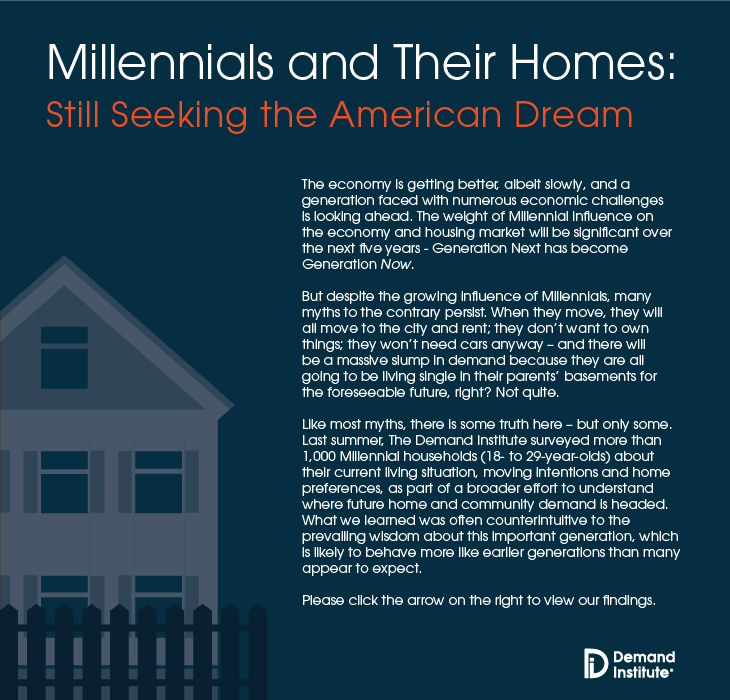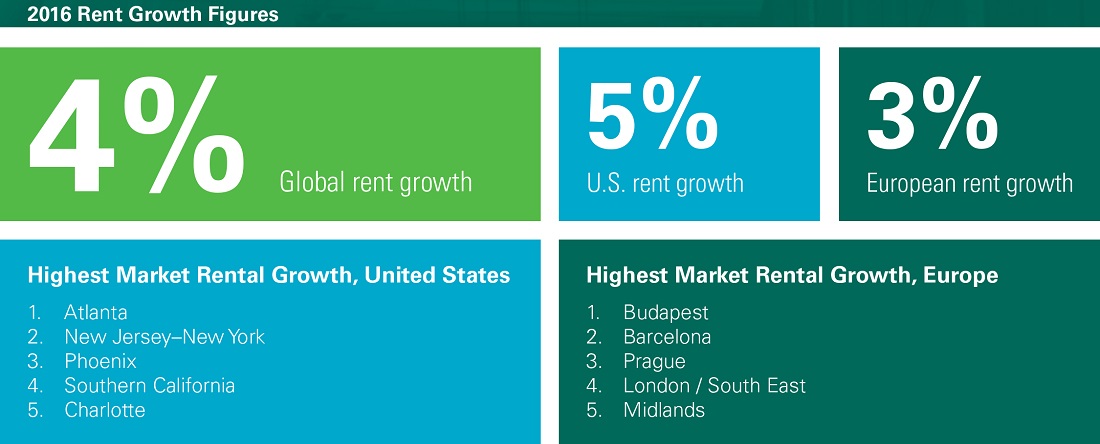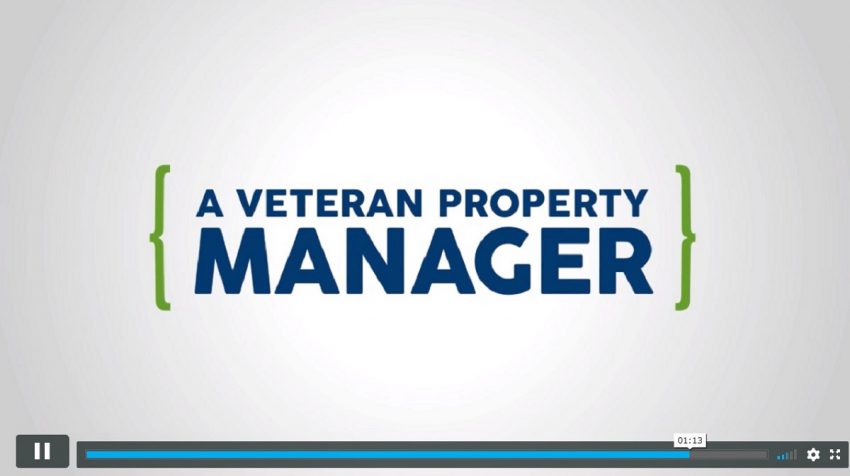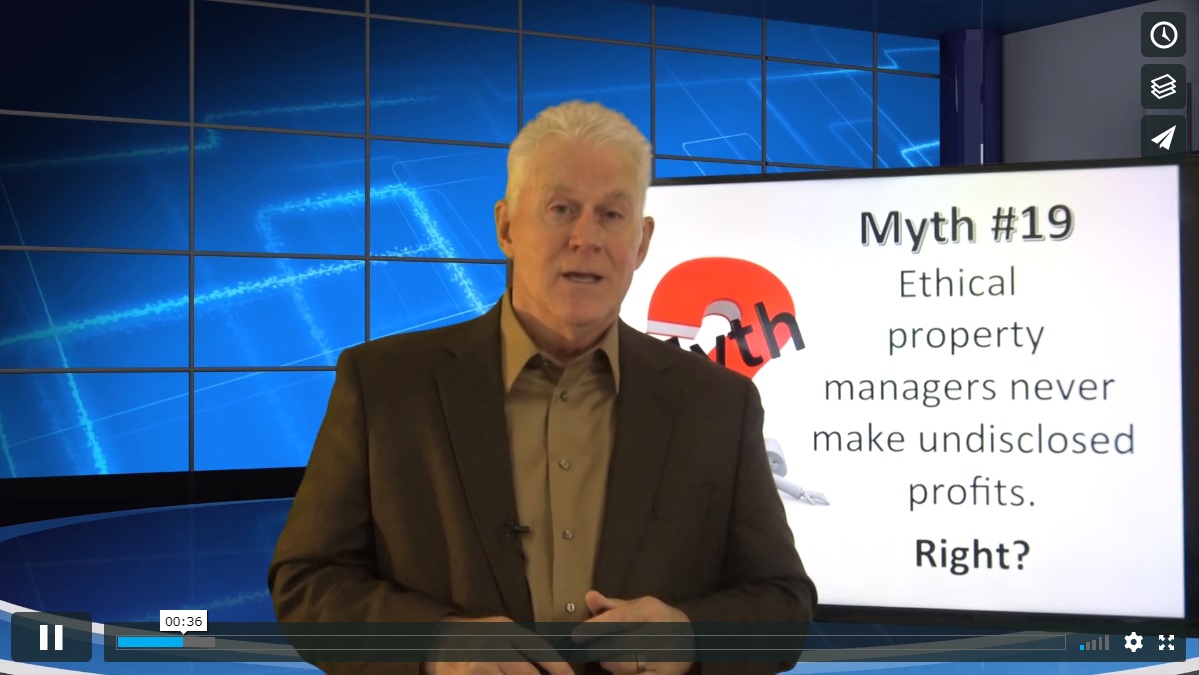View Our Expanding Line of Products
This is the part of our site where all the products, resources, videos, forms, manuals, handbooks, customized management agreements and leases, money-making ideas, CYA protections, checklists, service animal/comfort pet training and all you’ll ever need to run a safe and profitable management business. This is the “Mother Load”.
It will take us six to twelve months to get it all posted, and we’ll keep posting more as time goes on, but there will be more than you can digest before the end of the year. I’ve been digging through our 35 years of document archives and there’s more than I thought.
If you register we’ll send you notices as we post things so you’ll know what’s there and where to look for it.
FREE Myth Subscription
FREE Myth Subscription
Unsubscribe anytime
Subscription to the Myths of Property Management
We will send a courtesy email to let you know when new myths are posted. Thanks for being a valued client.
FREE Built to Grow Subscription
Unsubscribe anytime
Request an Appointment with Robert
View Our Expanding Line of Products
This is the part of our site where all the products, resources, videos, forms, manuals, handbooks, customized management agreements and leases, money-making ideas, CYA protections, checklists, service animal/comfort pet training and all you’ll ever need to run a safe and profitable management business. This is the “Mother Load”.
It will take us six to twelve months to get it all posted, and we’ll keep posting more as time goes on, but there will be more than you can digest before the end of the year. I’ve been digging through our 35 years of document archives and there’s more than I thought.
If you register we’ll send you notices as we post things so you’ll know what’s there and where to look for it.

How the Republican Tax Overhaul Benefits Landlords
Investors in single-family rental homes see the proposal as a potential boon to business. Just the prospect of the plan, which is still being negotiated on Capitol Hill, has more small investors rushing in.
Unlike owner-occupants, investors in single-family homes can write off all the expenses of owning and running a rental because the properties are considered a business. The vast majority of individual investors use mortgages on the properties. Fannie Mae and Freddie Mac allow up to 10 investor loans per person.
The interest on those mortgages, along with repair and management costs, are deducted from the income the property produces. Investors are only taxed on that income, so by reducing it, the investment acts as a tax shelter. None of that would change under the Republican tax proposal.
The tax plan could, however, drive increased demand for single-family rentals because it will reduce the tax benefits of homeownership. The proposal could eliminate the deduction for property taxes as well as lower the limit on the mortgage interest deduction. That would hit all homeowners who itemize and especially those owners of higher-cost properties in expensive locations. That, in turn, would benefit landlords.
"I think homeowners in those areas, instead of maybe buying up into a different property, will consider investing elsewhere to take advantage of tax shelters available with single-family investing," said Steve Hovland, director of research at California-based HomeUnion, a single-family rental marketplace and management company.
"People that are renting may consider investing into single-family real estate as opposed to owner-occupied real estate just because the tax benefits are so much better."
That is just what Finley Miller, a 34-year-old aerospace engineer in Southern California, is doing. He rents the home in which he lives but recently invested in two single-family rental homes in Atlanta. After putting 25 percent down on the mortgages, Miller said he is seeing about a 15 percent return.
"It's attractive relative to what I would guess that the stock market or other asset classes would do, and I think that will continue to be the case in the foreseeable future," said Miller, who added that he thinks the tax plan could actually benefit the markets where rental investors are most active.
"If it's a competition for businesses to locate in somewhere like Atlanta or Dallas versus somewhere like LA or New York, then maybe it's incrementally more attractive now in those lower-cost areas than it was if this tax plan hadn't gone into effect," Miller said.
The tax plan could also add to some of the issues that are already making homeownership more difficult, namely lack of supply. If the cap on the mortgage interest deduction were reduced from the current $1 million in mortgage debt to $500,000, which is in the House plan, current homeowners would be grandfathered into the original cap. That would give them much less incentive to move, thereby reducing the number of potential homes for sale.
One hit to investors, however, could be a drop in home prices. Investors not only gain income from monthly rent but from the appreciation of the asset. Several housing industry reports have predicted that home prices could drop as much as 10 percent as a result of the tax bill.
Miller agrees that prices could fall in more expensive markets, but most single-family investors don't operate in high-cost areas.
"I just don't think it's particularly likely in the lower-cost markets where most people don't itemize to begin with, and if they do, they're more likely to see a benefit than a hit," Miller said.
The biggest variable will be demand — does it increase or decrease with the tax bill? Republicans would argue that the tax plan will stimulate the economy and put more money in Americans' pockets. That, in turn, could help more young renters buy a home.
But, at the same time that the government is adding fiscal stimulus, it is also raising interest rates, which could make housing even more expensive.
And that is really the issue for landlords. Home prices continue to rise due to a severe shortage of homes for sale. If the cost of homeownership gets even higher, due to the tax bill and/or interest rates, it will be even more difficult for the youngest and largest generation to become homeowners. That means they will rent longer, and landlords will rake in the profits.
Sen. Bob Corker is seeking clarity on how a provision that would benefit people like him and President Trump wound up in the final agreement to overhaul the nation's tax code between Republicans in the House and Senate.
The Tennessee Republican sent a letter to Senate Finance Committee Chairman Orrin Hatch, R-Utah, on Sunday and asked how a provision on pass-through businesses that would reportedly give real estate investors a large tax break wound up in the deal. A reporter had called Corker, he said, alleging that it was a new provision inserted into the bill.
"My understanding from talking to leadership staff today is that a version of this provision was always in the House bill—from the Ways & Means markup, through House floor consideration—and in reconciling the divergent House and Senate approaches to pass-through businesses this House approach stayed in the final conferenced version," Corker said.
Corker's office noted that the senator was not involved in the writing of the legislation and was not a member of the conference committee that crafted it.
"Because this issue has raised concerns, I would ask that that you provide an explanation of the evolution of this provision and how it made it into the final conference report. I think that because of many sensitivities, clarity on this issue is very important and hope that you will respond in an expeditious manner," he added.
Corker announced on Friday that he would back the plan, which is expected to pass both chambers this week.
View Our Expanding Line of Products
This is the part of our site where all the products, resources, videos, forms, manuals, handbooks, customized management agreements and leases, money-making ideas, CYA protections, checklists, service animal/comfort pet training and all you’ll ever need to run a safe and profitable management business. This is the “Mother Load”.
It will take us six to twelve months to get it all posted, and we’ll keep posting more as time goes on, but there will be more than you can digest before the end of the year. I’ve been digging through our 35 years of document archives and there’s more than I thought.
If you register we’ll send you notices as we post things so you’ll know what’s there and where to look for it.

Lead-Based Paint
Georgia's Lead-Based Paint Program, located in the Land Protection Branch of the Environmental Protection Division, is responsible for protecting human health and the environment from activities that disturb lead-based paint.
Lead-Based Paint Renovation, Repair and Painting
Georgia's Lead Renovation, Repair, and Painting (RRP) Rules became effective Dec. 9, 2010. Georgia's RRP rules parallel the federal RRP requirements, which are designed to minimize the spread of lead dust and debris during RRP activities at target housing and child-occupied facilities built before 1978. The program is responsible for enforcing the state's RRP rule requirements, including: accrediting training providers; issuing certifications for renovators/supervisors, dust sampling technicians, and renovation firms; conducting outreach and education; and developing technical guidance.
Lead-Based Paint Abatement
The program also regulates lead-based paint inspection, risk assessment and abatement activities in target housing and child-occupied facilities built before 1978. The program is responsible for enforcing lead-based abatement rule requirements, including; review of inspections and risk assessments; accrediting training providers; issuing certifications for abatement inspectors, risk assessors, project designers, supervisors, workers, and lead firms; conducting outreach and education; and developing technical guidance.
PDF Forms to Keep Legal as a Property Manager in Georgia
2. 6 Reasons to Follow the Law
4. Application for Renovation Firm Certification Revised June 2011
6. Brief Summary of Georgia Lead Program
Related Government Links
Lead-Based Paint Contractors and Training Providers
Lead-Based Paint Forms
Lead-Based Paint Technical Guidance
View Our Expanding Line of Products
This is the part of our site where all the products, resources, videos, forms, manuals, handbooks, customized management agreements and leases, money-making ideas, CYA protections, checklists, service animal/comfort pet training and all you’ll ever need to run a safe and profitable management business. This is the “Mother Load”.
It will take us six to twelve months to get it all posted, and we’ll keep posting more as time goes on, but there will be more than you can digest before the end of the year. I’ve been digging through our 35 years of document archives and there’s more than I thought.
If you register we’ll send you notices as we post things so you’ll know what’s there and where to look for it.


VirtuallyInCredible was created by Todd Breen, a real estate broker and company owner who has pioneered several unique methods of using videos tours and inspection videos to market and manage real estate. Here’s a word from our founder:
I’ve been using simple and easy videos in my real estate business since 1994. The videos make me tens of thousands of extra dollars every year!
Since all of my real estate agents wanted to learn my system, I created an online course to train them. The result? All of my agents are now making more money than ever using a camcorder!
After you watch my tutorial videos and make a few practice runs with a camcorder, you can easily film professional looking unedited video tours in minutes.
I’ve taught my agents what cameras to buy, how to shoot a great video tour, then how to upload it to YouTube. It’s super easy, and by popular demand now YOU can have access to this copyrighted training my agents have been using.
Learn how VirtuallyinCredible can help you run a more efficient, profitable property management business
Contact Todd
Contact Todd
Contact Our Recommended Vendors
View Our Expanding Line of Products
This is the part of our site where all the products, resources, videos, forms, manuals, handbooks, customized management agreements and leases, money-making ideas, CYA protections, checklists, service animal/comfort pet training and all you’ll ever need to run a safe and profitable management business. This is the “Mother Load”.
It will take us six to twelve months to get it all posted, and we’ll keep posting more as time goes on, but there will be more than you can digest before the end of the year. I’ve been digging through our 35 years of document archives and there’s more than I thought.
If you register we’ll send you notices as we post things so you’ll know what’s there and where to look for it.


Rently is the premier electronic lockbox showing solution. Utilizing Rently’s lockbox showing solution, renters can instantly and securely access properties at their convenience. This method, also referred to as Self-Service Showing, is becoming the industry norm, and potential renters are expecting this service more and more.
Rently uses Sentrilock Lockboxes as a shell, with a Banking-level encryption technology that pre-loads millions of millions of codes onto each box, and is able to determine if each code entered is the correct code for that date and time. These are Motorized lockboxes with a 5 year lithium ion battery, made in the USA, and covered by our Partnership Guarantee.
Self-Showings aren’t going to work for every property, so Rently includes a dynamic & powerful scheduling platform with our system that allows renters to schedule agent-led showing based on your customized schedule.
Rently allows you to easily market your listing to a multitude of sites at the same time. This is great, but where the true power of our syndication lies is when it is combined with our auto-responder, which immediately and automatically reaches out to an interested renter, directing them through the process to set up a showing. Now every renter who contacts you not only gets instant gratification, they are given the tools to move through the showing process while other managers are still trying to just get in touch.
Contact Edward
Contact Edward
Contact Our Recommended Vendors
View Our Expanding Line of Products
This is the part of our site where all the products, resources, videos, forms, manuals, handbooks, customized management agreements and leases, money-making ideas, CYA protections, checklists, service animal/comfort pet training and all you’ll ever need to run a safe and profitable management business. This is the “Mother Load”.
It will take us six to twelve months to get it all posted, and we’ll keep posting more as time goes on, but there will be more than you can digest before the end of the year. I’ve been digging through our 35 years of document archives and there’s more than I thought.
If you register we’ll send you notices as we post things so you’ll know what’s there and where to look for it.


With more than 35 years of business experience, Kenneth Jennings has vast industry knowledge and is also the founder of more than 40 businesses. He is currently the CEO of many successful businesses including America’s Largest Residential Locksmith® company.
At the young age of 13, Ken’s entrepreneurial spirit became apparent when he started his first business selling garden seeds door-to-door. By the age of 16, he was running his own pizza business. Several years down the road (and more than just a few ventures later), he launched Texas Rekey Locksmith Company out of the back of his car. The company eventually expanded outside of Texas and transitioned into Mr. Rekey Locksmith Services. His vision was to provide service to a niche market in the residential and commercial locksmith industry. He wanted to do this by rekeying rather than replacing locks, thereby saving time and money. As of 2017, the Mr. Rekey brand exists in 30 major markets from coast to coast and is actively awarding franchise opportunities with the Mr. Rekey Locksmith franchise.
Ken is not only the CEO of Mr. Rekey Locksmith, he is also an active real estate investor and more. In 2008, he founded Mr. Garage Door, a multi-city garage door service company, and in 2012, he formed Mr. Property Reports (now OnSight PROS). He is still the active CEO of both companies.
Ken mentors numerous entrepreneurs and is an avid student of both business and investment. In his spare time (which he somehow manages to find between all his other endeavors), he enjoys traveling and playing tennis.
Contact Ken
Contact Ken
Contact Our Recommended Vendors
View Our Expanding Line of Products
This is the part of our site where all the products, resources, videos, forms, manuals, handbooks, customized management agreements and leases, money-making ideas, CYA protections, checklists, service animal/comfort pet training and all you’ll ever need to run a safe and profitable management business. This is the “Mother Load”.
It will take us six to twelve months to get it all posted, and we’ll keep posting more as time goes on, but there will be more than you can digest before the end of the year. I’ve been digging through our 35 years of document archives and there’s more than I thought.
If you register we’ll send you notices as we post things so you’ll know what’s there and where to look for it.

Homeownership doesn't build wealth, study finds
- Households are better off taking control of their finances than relying on fluctuating home values.
- The homeownership rate is still hovering near its record low, yet demand has been steadily rising.
- Nationwide, since the recession, there have been two distinct housing markets.
The question of rent versus buy has been wildly popular during the housing recovery. The historic housing crash at the end of the last decade came as a bitter shock to millions of Americans, many of whom never considered that home values could fall at all or that they could fall as far as they did.
The U.S. homeownership rate is still hovering near its record low, yet buyer demand has been steadily rising. Construction, however, has not been rising quickly enough to meet that demand, resulting in fast-rising prices. In the last few years, prices have increased faster than income and inflation.
In some markets, home values have hit record highs, again fueling the debate over which is more lucrative, buying or renting?
Rents have also increased dramatically, as new households are formed and millennials, now the largest generation, struggle to afford a downpayment. While there has been a building boom in luxury rental housing, that has not been the case with affordable rental development.
Still, researchers in the study claim the old adage of "throwing your money away on rent," doesn't hold up. That is because it assumes that the extra money a renter saves by not owning a home and not saving for a downpayment is simply spent on goods or services and not invested.
"When you assume that those monies are reinvested at a rate of return, renting, on average, wins in terms of wealth creation," Johnson said. "Of course, many renters will not reinvest those monies and will instead use them for consumer goods, which is the least desirable option in terms of building wealth."
In other words, the rent argument only works if the renter invests the rental savings rather than consuming it.
Johnson and his colleagues also assessed price volatility. Some local housing markets, like Miami and New York City, are far more volatile than Kansas City or even Atlanta. The researchers therefore went city by city, measuring home price appreciation against a portfolio of stocks and bonds that were equal in volatility.
"To have a fair race, that reinvestment into stocks and bonds has to be as risky as that particular housing market," Johnson said.
While all housing has always been local, home price performance has been especially so following the recession. In the nation's 24 largest metropolitan housing markets, just four showed median home price appreciation between 2010 and 2016 that was higher than the median return of a stock portfolio, according to a report by Redfin, done in November 2016.
Three of those four were in Northern California, and the fourth was Miami. All four rank high among real estate investors, especially foreign investors, not owner occupants.
Nationally, since the recession, there have been two distinct housing markets.
"The first is the one that gets all the attention, where high prices, low inventory and strong buyer demand is supported by dirt cheap rates and high job creation and income growth," said Nela Richardson, Redfin's chief economist.
"The second market is in parts of the country [Trump country] where home prices never took off, unemployment is still high and wages are stagnating," Richardson said. "Prices aren't growing quickly in these places and there's been little home equity growth. The housing market mirrors the growing economic inequality in the country at large: Rich metros grow, poor ones don't."
When you consider that many Americans are not invested in the stock market, "the forced savings of a monthly mortgage is a key reason why housing has served as an engine of growth for the middle class over the last 50 years," Richardson added.
As long as home values don't fall, which has historically been the case in most markets, with the glaring exception of the last recession, homeowners are building a nest egg. They had also been getting a tax advantage. That is now at risk in the Republican tax plan, which curbs the mortgage deduction and in the Senate version, wipes out the property tax deduction.
Real estate can still be a good investment, according to Johnson, but not necessarily living in the home you own. Being a landlord or investing in real estate-related stocks and commodities can be more lucrative that keeping all your capital in the nest.
View Our Expanding Line of Products
This is the part of our site where all the products, resources, videos, forms, manuals, handbooks, customized management agreements and leases, money-making ideas, CYA protections, checklists, service animal/comfort pet training and all you’ll ever need to run a safe and profitable management business. This is the “Mother Load”.
It will take us six to twelve months to get it all posted, and we’ll keep posting more as time goes on, but there will be more than you can digest before the end of the year. I’ve been digging through our 35 years of document archives and there’s more than I thought.
If you register we’ll send you notices as we post things so you’ll know what’s there and where to look for it.

Single-family rentals — either detached homes or townhomes — are developing faster than any other portion of the housing market. These rentals outpace both single-family home purchases and apartment-style living, according to the Urban Institute.
“Almost all the housing demand in recent years has been filled by rental units,” says Sara Strochak, a research assistant with the Urban Institute. She also states that single-family rentals have gone up 30% within the last three years.
This change is unique to newer generations. But when did rentals become so popular? And why are people more inclined to rent than to buy? Below, we’ll further discuss the rise in rentals and how it affects the housing market.
When did the rise in single-family rentals start?
The housing bubble collapse and the recession that followed shattered the decades-old tenet of American wisdom that you can’t go wrong buying a home. Most of the housing market fallout from the Great Recession has finally receded — foreclosures and underwater mortgages are back to traditional levels and housing values have recovered in most places. But one thing hasn’t recovered: Americans’ unquestioned desire to own a home.
Today, single-family rental homes and townhomes make up 35% of the country’s 44 million rental units, compared to 31% in 2006.
Who is leading this trend?
Millennials are leading the way to single-family rentals, and myriad factors contribute to this trend. Many young adults aren’t in a hurry to lay down roots, whether they’re prone to traveling or simply aren’t ready to commit to one area or one home. Student loans and stagnant incomes can also make it harder to save up for a down payment. And it’s inevitable that young people who came of age during the housing bubble would be reluctant to take a leap of faith and commit to a 30-year mortgage.
“While the age distribution of the U.S. population suggests most millennials are reaching the age of household formation and demand for single-family homes, much of this demand is likely to be channeled into the rental market,” says Strochak.

Are only Millennials affected?
However, it’s not just young people. Americans over 55 have also grown more interested in renting. According to RENTCafé, the number of renters aged over 55 has grown by a whopping 28% between 2009 and 2015. Many of them want to rent homes instead of apartments. From 2010 to 2016, single-family rental households in the US increased by nearly 2 million—1.26 million of those renters were 34 to 65 years old, while just under a half million were 65 or older, according to a RENTCafé Census data analysis provided by Adrian Rosenberg. In places like Miami, Houston, and Minneapolis, more than two-thirds of new single-family renters were over 65.
That's primarily because of a proposed change to a popular mortgage interest deduction for new homeowners.
What led to this trend?
When did home renting become so popular? The trend began with large firms buying up cheap homes during the recession and turning them into cash-generating rentals—often rented by families who’d lost their own homes or who could no longer qualify for mortgages. Institutional investors, which are organizations like banks, hedge funds, and mutual funds, gobbled up millions of single-family homes that fell into foreclosure. In Phoenix, for example, the total of single-family homes occupied by homeowners—instead of renters—dropped by 30,000 from 2007 to 2010. Two-thirds of those homes were bought by institutional investors, the Urban Institute says.
But as prices have recovered, that business model no longer works. Instead, small-time landlords now dominate the market, explains Strochak. Investors who have fewer than 10 units own 87% of all single-family rentals, while investors who have only one rental unit own 45%.

How does this change the home-building market?
Big players continue to push the trend, some deploying a new build-to-rent model. Housing firms are actively building single-family homes intending to rent them rather than sell, says ATTOM Data Solutions, a firm that analyzes housing market data.
“I can buy lots in areas that I can’t sell homes, but I can rent,” real estate agent Adam Whitmire told ATTOM in a recent report. “The local economy may not have enough income or enough credit to buy but there is enough income to rent.”
While big-time rental firms are backing off in some larger cities, the single-family rental investment play is picking up in smaller markets around the country in places like Dayton or Chattanooga, according to ATTOM.
How does renting affect local neighborhoods?
The movement to more single-family rentals is a mixed bag, says Daren Blomquist, senior vice president at ATTOM. On the one hand, the professionalization of the single-family rental industry is good for both families and neighborhoods, as there could be more standardized levels of maintenance and management services.
But there will likely be “unintended consequences as the nature of some neighborhoods change,” Blomquist warns. Renters might not be as invested in communities as owners.
“For example, people who want to own a home may no longer be as active in the typical suburban white picket fence neighborhood as properties in those neighborhoods become more prominently rentals,” he says. “That may push those homebuyers back into more urban, walkable environments, or it might push them further out to more rural areas.”
An old Dutch prison complex is getting a second life as a giant, environmentally friendly neighborhood. Buzz60's Elizabeth Keatinge (@elizkeatinge) has more.
Should you rent a home instead of buying?
Renting a home instead of buying can be a sensible choice for those looking to break out of apartment life. It can even serve as a good halfway step toward owning, to make sure single-family home life is really for you before you commit to a mortgage.
The main attraction to renting is obvious: buyers don’t need a large down payment to move in. While plenty of mortgage programs give would-be buyers a break on the traditional 20% down mortgage model, skyrocketing prices in urban areas like Seattle or Washington DC mean that even 5% can be a prohibitive down payment requirement. So renting might make sense if you are ready to live in a house.
What should you know before renting a single-family home?
While all rental transactions are similar, there are a few things you should consider before moving to a home rental. If you’re moving from an apartment, utilities will probably be considerably more expensive — after all, you’ll be heating and cooling an entire home much of the year. There’s also quite a few more maintenance requirements, particularly if there’s a yard. Ensure your lease has clear terms regarding who pays for upkeep of the property. Gardening might seem appetizing if you are sick of your apartment, but it can be a year-round job, so make certain you’re ready for the extra work. If you want to paint the walls or make other changes, know that you will need permission in writing.
Additionally, because you will inevitably have more possessions than in an apartment, it’s more important than ever to get renter’s insurance — your landlord’s policy likely won’t cover damage to or theft of your property. You should also consider liability insurance, in case you’re found responsible for any kind of accident at the property that causes personal or property damage.
If you’re moving to a single-family rental for more space or for monetary reasons, remember to adjust your budget to accommodate the new utility and rental costs.
View Our Expanding Line of Products
This is the part of our site where all the products, resources, videos, forms, manuals, handbooks, customized management agreements and leases, money-making ideas, CYA protections, checklists, service animal/comfort pet training and all you’ll ever need to run a safe and profitable management business. This is the “Mother Load”.
It will take us six to twelve months to get it all posted, and we’ll keep posting more as time goes on, but there will be more than you can digest before the end of the year. I’ve been digging through our 35 years of document archives and there’s more than I thought.
If you register we’ll send you notices as we post things so you’ll know what’s there and where to look for it.
What's Your Opinion?
Question: Ethical property managers never make undisclosed profits! Right?
We like to offer opinions that some managers may disagree with. Watch this video and register your opinion regarding the property manager’s liability when following the owner’s instructions.
What's Your Opinion about Undisclosed Profits?
View Our Expanding Line of Products
This is the part of our site where all the products, resources, videos, forms, manuals, handbooks, customized management agreements and leases, money-making ideas, CYA protections, checklists, service animal/comfort pet training and all you’ll ever need to run a safe and profitable management business. This is the “Mother Load”.
It will take us six to twelve months to get it all posted, and we’ll keep posting more as time goes on, but there will be more than you can digest before the end of the year. I’ve been digging through our 35 years of document archives and there’s more than I thought.
If you register we’ll send you notices as we post things so you’ll know what’s there and where to look for it.
























